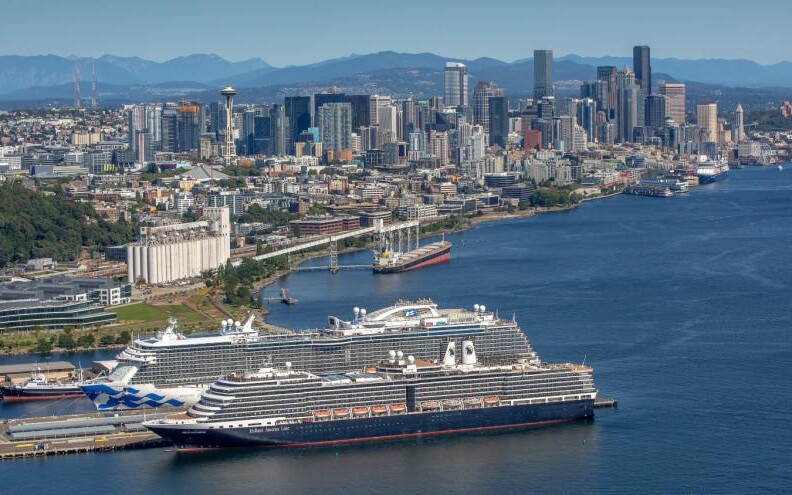The Port of Seattle’s new 10-year preferential berthing agreement with Carnival Corporation will advance plans to have all berthed cruise ships using shore power by 2027, according to port officials.
– Develop the use of biofuel in cruise ship operations, with the port and Carnival Corporation collaborating on a non-fossil fuel demonstration project “and study to identify the end-to-end challenges and opportunities for using sustainable maritime fuels at scale in Seattle.”
– Develop a responsible sourcing pilot program: Carnival Corporation will accelerate its local sourcing efforts to partner with local suppliers. Working with the Port, it will develop a pilot program for Seattle that promotes and supports small, diverse, disadvantaged, local, and tribal suppliers.
– Support educational and workforce development with maritime not-for-profits, with Carnival working with educators to support curriculum development, experiential field-based learning opportunities, and internships where appropriate to help build the maritime workforce pipeline in the region.
“This long-term agreement provides economic certainty for the Port and local businesses who depend upon cruise, while also strengthening our partnership,” said Port of Seattle Executive Director Steve Metruck. “Carnival Corporation has been a valuable partner for constant innovation on environmental sustainability and expanding economic opportunity. We appreciate their support for these shared goals and are eager to get to work on the commitments in this agreement.”
“Our guests love Seattle’s stunning natural beauty, urban charm, and eclectic assortment of attractions, and as our gateway to Alaska, one of our top markets globally. The Port of Seattle has long been a valued partner in our mutual ongoing success,” said Josh Weinstein, chief executive officer of Carnival Corporation.
“For the past 20 years, we have worked closely with the Port of Seattle to pioneer shore-power and secure the cruise industry’s role as a vital economic engine for the region. We are proud to continue our tradition of teamwork with this new agreement that will help further our economic, social, and environmental contributions to the region.”
With investments by Carnival at its terminal, Seattle in 2004 became the first home port in North America to offer shore power at two cruise berths. Today 66% of all cruise calls to the Seattle are equipped to plug in, according to port officials.
Port commissioners formally required the new 2027 deadline at a meeting June 11, moving up from their previous goal of 2030.
“Ensuring all homeported cruise ships utilize shore power by incorporating a requirement in our commercial agreements, the Port continues to demonstrate how we can generate economic opportunities while minimizing our impact on communities and the climate,” said port Commissioner Fred Felleman, who sponsored the order.
Using shore power cuts diesel emissions from berthed cruise ships by 80% on average.




